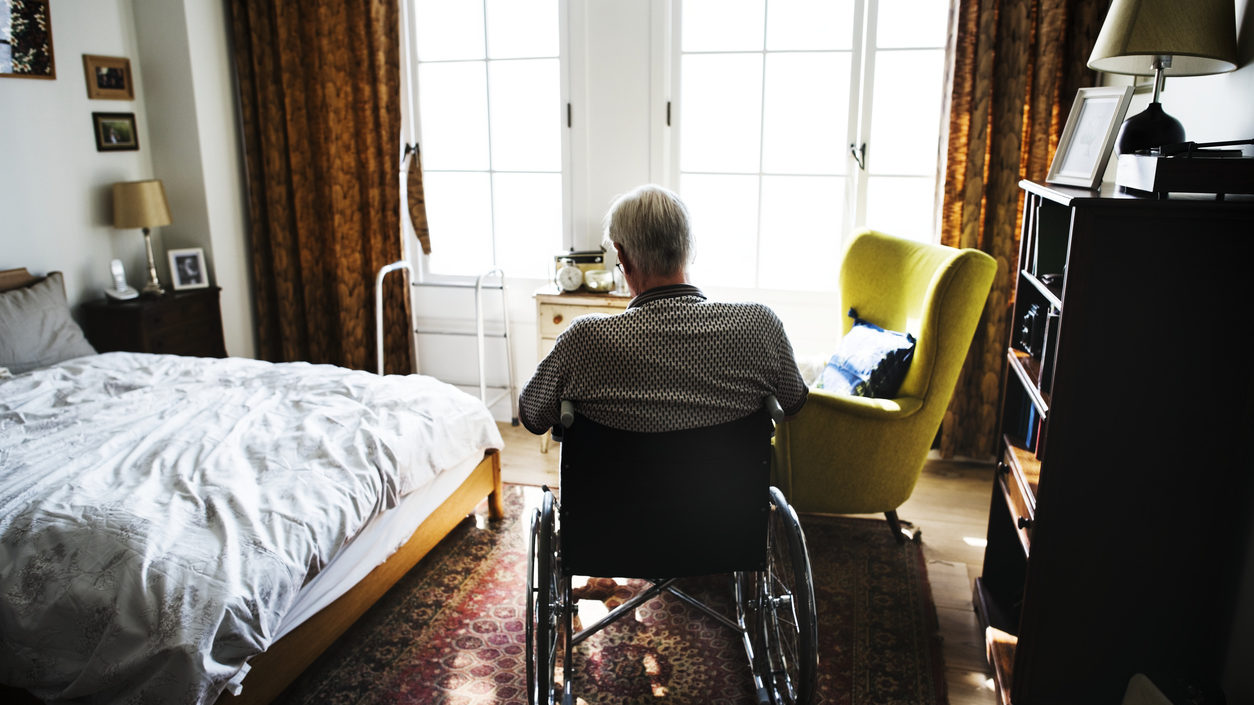Fewer people are eligible for that care too. The threshold in England – with council support for those with assets under £14,250 and partial support for those with less than £23,350 – has not moved since 2010/11, triggering a 12 per cent reduction in eligibility. But the number of people caring for their dependents has decreased, with an ONS estimate of 5.4 million informal carers in the UK, down from 5.8 million in 2011.
Social care is in a perilous position – but pouring more cash into the system may not be the answer if it ends up in shareholders’ pockets. Social enterprises can reinvest profits to keep the cash flowing in and the quality of care at a high standard.
But for the bloke who is looking after his wife with dementia it might be the one thing every week that helps him cope
That’s the view of West Midlands-based Sandwell Community Caring Trust (SCCT) CEO Geoff Walker. The social enterprise, which has been backed by Big Issue Invest, The Big Issue’s social investment arm, provides supported living for more than 600 people.
“We are all saying people should be living at home but the value for money has to come down the line,” says Walker. “For example, we used to do arts sessions for people living with dementia. It might be £44 for a session in a music studio but if I asked for funding for that then I’d probably be laughed out of town.
“But for the bloke who is looking after his wife with dementia it might be the one thing every week that helps him cope with caring for someone who might not remember his name. If he has a breakdown then it might cost the system £1,500 to help him deal with that, and we are in a system where they would rather pay
the £1,500.
“The NHS is claiming to be preventative but that is a little too hard for them. It’s a more cost-effective method but they find it easier to spend money on acute services.
Advertising helps fund Big Issue’s mission to end poverty
“Social enterprises like ours pour money back into the system instead of being lost in shareholder value. We all talk about waste but no one talks about profit being pushed out of businesses as waste. That is crazy to me.”
The strain on already over-stretched services is creating further demand for workers in social care. The IFS found that almost half a million more staff will be required by 2033/34 – an increase of 2.2 per cent a year.
Walker insists that socially conscious businesses like Sandwell can stop carers being pushed to the brink – the National Audit Office reported that the turnover rate across all care jobs in 2016/17 was 27.8 per cent – for the benefit of everybody.
“Social enterprises can retain staff – most of ours have worked for us for 10 years or more,” he says. “You can’t buy that consistency. A lot of private companies’ staffing levels are driven by profit – I can tell you that it could not be further from mine. It is about quality. How can you have beneficiaries who are happy and satisfied with their treatment unless you have carers who feel the same way?
“About 90 per cent of our employees are local people and 80 per cent of our outlay is on wages. So we are contributing to the local economy and anti-poverty strategy too.”
Social Enterprise UK (SEUK) is encouraging other socially conscious firms to boost social care with their spin-out network – around 40 members who have emerged from primary care trusts to become independent social enterprises. By the end of 2011, the value of public services delivered by dozens of NHS ‘spin-outs’ was £886m, representing 12 per cent of the social enterprise’s annual turnover. Seven years later, across all sectors, the spin-outs’ contribution to the sector is worth £1.6bn, according to a SEUK report.
Advertising helps fund Big Issue’s mission to end poverty
One of the 659 Scottish social enterprises in the sector is Cornerstone, an award-winning provider of services for more than 2,000 disabled people. It was given a £500,000 loan by Big Issue Invest last year to finance a project that will improve business processes and systems as they launch their ambitious Local Cornerstone initiative to revolutionise social care in Scotland.
“We are by no means a small organisation but relative to the NHS we are smaller and that allows us to have the ability to respond quicker to changes in demand. We also don’t have to deal with the politics that the NHS sometimes gets drawn into,” says Edel Harris, Cornerstone chief executive.
“However, when it comes to bidding for contracts, we are competing on the same terms as private companies. It’s a constant balancing act because we can really believe in a project but if we can’t afford it then it is not something we can do without making poor financial decisions.
“We currently operate our business very much in partnership with the NHS but sometimes these partnerships can be tested by lack of resources and over-complication.”
Tracey Bush, CEO of public service mutual Spiral Health, which manages care homes in Lancashire offering 51 beds to ease bed-blocking in local hospital trusts, agrees that social enterprises can react more rapidly than the giant of the NHS.
“We can do things a bit slicker and quicker than within the NHS model while we can keep the same level of care,” she says.
Advertising helps fund Big Issue’s mission to end poverty
“We see ourselves as partners to the NHS – they do a great job and we can support them with that because we can get around a table quickly and make decisions without getting caught up in bureaucracy. That allows us to keep our costs down and we don’t have t he same amount of policy processes and systems that the NHS has.
“I think we will see social enterprises becoming more prevalent in the sector. The public wants to see the NHS make the best use of their funds in the right way and, as a public service mutual as well, we want the same thing. Social enterprises also have that ‘business for good’ model that wins people’s hearts and minds.”
bigissueinvest.com / @BigIssueInvest
The figures worth caring about
120 – 120 members of Social Enterprise UK work in the health and social care sector
£1.6bn – Public service mutuals – organisations that have left the public sector but continue delivering public services – account for £1.6bn of value across all sectors
90% – 90 per cent of those public service mutuals reported faster or easier decision-making than when part of the public sector with 85 per cent believing they have a happier and more engaged workforce
Advertising helps fund Big Issue’s mission to end poverty
£16.8bn – NHS social care spending is currently £16.8bn a year – including contributions from the Better Care Fund – 9.9 per cent less than at its peak eight years ago. This needs to increase by 3.9 per cent every year to maintain standards
70% – NHS spending on care by private companies in 2017/18 is £3.1bn with non-NHS firms winning almost 70 per cent of tendered contracts in England last year
£15.9bn – The care homes sector is worth around £15.9bn a year in the UK, with around 410,000 residents. There are around 5,500 providers in the UK operating 11,300 care homes for the elderly
27.8% – Carer turnover was 27.8 per cent last year
36% – There will have been a 36 per cent growth in people aged 85+ between 2015 and 2025, from 1.5 million to two million
£132bn – There are an estimated 5.4 million informal carers in the UK, saving the economy £132bn. This is down from 5.8 million carers in 2011
Advertising helps fund Big Issue’s mission to end poverty
Sources: Social Enterprise UK, IFS, NHS Support Foundation, Competition and Markets Authority, NAO, ONS
Image: iStock










